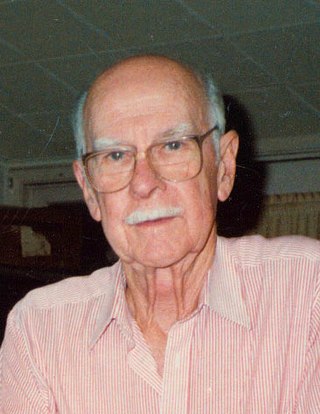See also
- Tom Stanford (1860–?), British footballer
Thomas Stanford may refer to:

The Hoover Institution is an American public policy think tank that promotes personal and economic liberty, free enterprise, and limited government. While the institution is formally a unit of Stanford University, it maintains an independent board of overseers and relies on its own income and donations. It is widely described as a conservative institution, although its directors have contested its partisanship.
Joe or JOE may refer to:

Franklin Rosborough Thomas was an American animator and pianist. He was one of Walt Disney's leading team of animators known as the Nine Old Men.
Thomas Power O'Connor, PC, known as T. P. O'Connor and occasionally as Tay Pay, was an Irish nationalist politician and journalist who served as a Member of Parliament (MP) in the House of Commons of the United Kingdom of Great Britain and Ireland for nearly fifty years.

Empire is a British film magazine published monthly by Bauer Consumer Media. The first issue was published in May 1989.
David Michael Kennedy is an American historian specializing in American history. He is the Donald J. McLachlan Professor of History Emeritus at Stanford University and the former Director of the Bill Lane Center for the American West. Kennedy's scholarship is notable for its integration of economic analysis and cultural analysis with social history and political history.

Oliver Martin Johnston Jr. was an American motion picture animator. He was one of Disney's Nine Old Men, and the last surviving at the time of his death from natural causes. He was recognized by The Walt Disney Company with its Disney Legend Award in 1989. His work was recognized with the National Medal of Arts in 2005.
Bill Walsh is the name of:
Russ is a masculine given name, often a short form of Russell, and also a surname.
The Stanford Law Review (SLR) is a legal journal produced independently by Stanford Law School students. The journal was established in 1948 with future U.S. Secretary of State Warren Christopher as its first president. The review produces six issues yearly between January and June and regularly publishes short-form content on the Stanford Law Review Online.
The Stanford Review is a student-run right-wing newspaper that serves Stanford University in Stanford, California. It was founded in 1987 by Peter Thiel and Norman Book.
David Miller may refer to:
Frank Stanford was an American poet. He is most known for his epic, The Battlefield Where The Moon Says I Love You – a labyrinthine poem without stanzas or punctuation. In addition, Stanford published six shorter books of poetry throughout his twenties, and three posthumous collections of his writings have also been published.

Stephen Elliott is an American writer, editor, and filmmaker who has written and published seven books and directed two films. He is the founder and former Editor-in-Chief of the online literary magazine The Rumpus. In December 2014, he became senior editor at Epic Magazine.
Richard Meyer may refer to:
Thomas Richards may refer to:
Thomas Kane may refer to:
Rogan is an Irish surname, deriving from the Gaelic Ó Ruadhagáin 'descendant of Ruadhagán'.

Thomas Randall Mann Jr. is an American actor. He is known for his roles in the films Project X (2012), Hansel & Gretel: Witch Hunters (2013), Me and Earl and the Dying Girl (2015), Kong: Skull Island (2017), and Halloween Kills (2021).
Thomas Gerald Stanford was an American film and television editor with about sixteen feature film credits. He won the Academy Award for Best Film Editing at the 34th Academy Awards for the film West Side Story (1961), which was only his second credit as an editor. Long afterwards, West Side Story was listed as the 38th best-edited film of all time in a 2012 survey of members of the Motion Picture Editors Guild. The film's editing is also featured in Louis Giannetti's textbook Understanding Movies.